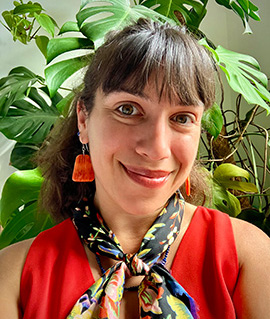Alexandra Peck
Research Area
Education
PhD (Brown)
MA (Brown)
BA (Seattle)
About
Dr. Alexandra M. Peck serves as the inaugural Audain Chair in Historical Indigenous Art & Assistant Professor at the University of British Columbia’s Department of Art History, Visual Art, & Theory. She is an anthropologist and material culture specialist with a research focus on Pacific Northwest Native art, archaeology, and geography.
Dr. Peck’s past publications examined totem poles and Indigenous land reclamation in urban and rural locales, Haida argillite carving and female sexuality, culturally modified trees and burial practices, woven wooly dog fur/cedar/mycological textiles, obstacles in repatriation, and a variety of other unique topics. Her current scholarship emphasizes Indigenous cartography and ethnogeography, ancient Coast Salish stone sculpture, and digital cultural repositories.
Dr. Peck’s research is featured in a multitude of publications, including: Texte Zur Kunst, Journal of Northwest Anthropology, & Journal of American History, as well as funded by: the Wenner-Gren Foundation for Anthropological Research, Mellon Foundation, & Ruth Landes Memorial Research Fund via the Reed Foundation.
She also consults on NAGPRA and repatriation cases in the U.S. and Canada, where she has curated gallery and museum exhibits and provides museum consulting services and workshops regarding Native cultural heritage, preservation, and conservation. Dr. Peck serves as co-editor of the journal, Archaeology in Washington, with Dr. Adam Rorabaugh, and organizes the Audain Symposium on Historical Indigenous Art at UBC.
Prior to joining AHVA, Dr. Peck earned her Ph.D. in Anthropology from Brown University, where she studied with Drs. Robert Preucel and Patricia Rubertone, and served as Visiting Scholar of Indigenous Studies at the University of Minnesota-Twin Cities’ Institute for Advanced Study, where her work was supported by the Mellon Environmental Stewardship, Place, & Community Initiative.
Please see her personal website for additional information, including publicly accessible publications and C.V. She is actively recruiting graduate students and welcomes research collaborations.
Teaching
Research
Native American & First Nations art (pre-colonial and early colonial), Northwest Coast art, archaeology, material culture, ecology/land/environment, cultural adaptation & exchange, museums & cultural heritage
Publications
“Reexamining the 1921 ‘Potlatch Collection’: Kwakwaka’wakw Definitions of Property & the Politics of Repatriation,” Texte Zur Kunst (Special Issue: Restitution) 133, no. 1 (2024): 54-71.
“Mariners, Makers, Matriarchs: Changing Relationships Between Coast Salish Women & Water,” Open Rivers: Rethinking Water, Place, & Community 21, no. 1 (2022): 7-29.
“Deconstructing Cultural Patterns in Anthropology: Totem Poles & the Diverse Native Narratives That They Elicit,” in Decolonizing Place-Based Arts Research, ed. Mary Modeen (University of Dundee Press, 2021), 22-33.
“‘We Didn’t Go Anywhere’: Restoring Jamestown S’Klallam Presence, Combating Settler Colonial Amnesia, & Engaging with Non-Natives in Western Washington,” Journal of Northwest Anthropology 55, no. 1 (2021): 105-134.
“Coast Salish Social Complexity, Community Ties, & Resistance: Using Mortuary Analysis to Identify Changes in Coast Salish Society Before, During, & After the Early Colonial Period,” Journal of Northwest Anthropology 54, no. 2 (2020): 175-202.
“Wampanoag Homesite: Plimoth Plantation, Plymouth, Massachusetts,” Journal of American History 105, no. 3 (2018): 625-630.
“Give & Take: Shakee.át Entanglements,” Manual: A Journal About Art & Its Making 8, no. 1 (2017): 51-60. Co-authored with Robert Preucel.
